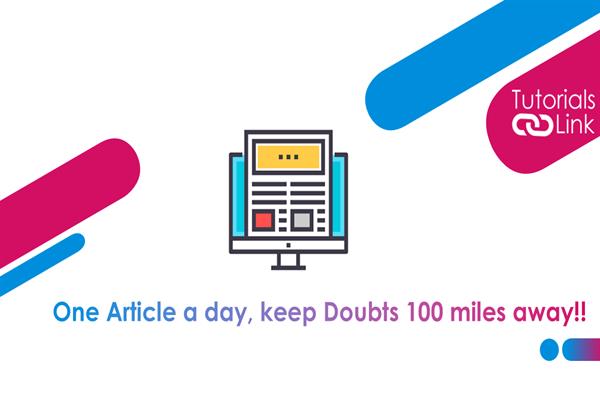Business Analyst's Roles and Responsibilities
In this article, we will have a look, how to become a Business Analyst and their roles and responsibilities
Introduction
In this article, I would like to share some details about the job position of "Business Analyst". This blog will be more useful for those who wish to switch their career as a business analyst. Here, we will see the following.
- Role & Responsibilities of Business analyst
- Skills of a Business Analyst
- How to Become a Business analyst
Role & Responsibilities of a Business Analyst
A business analyst plays an intermediator between stakeholders/customers and the technology team (Software Development Team), with the primary responsibility of understanding the customer's requirements and converting it into technical requirements. Based on the technical requirement, the technical team develops software.
Here, I have mentioned some of the important responsibilities of a business analyst.
- Risk Management
- Documenting Requirements
- Gathering Analysis
- Creating Use Case
- Functional and Non - Functional Requirements
- User Acceptance Testing
Risk Management
In most of the projects, there may be some problems. So, discovering the problems and then going for development is a good method. In the very first step, the Business Analyst has to find the risk factors involved in the project, and have to give a good solution for those risks.
In most of the projects, there may be some problems. So, discovering the problems and then going for development is a good method. In the very first step, the Business Analyst has to find the risk factors involved in the project, and have to give a good solution for those risks.
Documenting Requirements
After finding out a better solution, the key points should be made as to the document. The document should be clear and not very complex or technical.
After finding out a better solution, the key points should be made as to the document. The document should be clear and not very complex or technical.
Gathering Requirements
The key responsibility of a BA is to interact with customers and gather their requirements. Business Analyst has to convey the requirement to the technical team. Based on the Business Analyst's document, the software team will develop the project/product.
The key responsibility of a BA is to interact with customers and gather their requirements. Business Analyst has to convey the requirement to the technical team. Based on the Business Analyst's document, the software team will develop the project/product.
Creating Use Case
Each project must have users. Based on the number of actors/users, the Business Analyst has to draw use cases (UML Diagrams).
Functional & Non-Functional Requirements
To get a successful end product, a Business Analyst has to determine the functional and non-functional requirements. Functional deals with "What the application does" and non-functional deals with "How it does".
To get a successful end product, a Business Analyst has to determine the functional and non-functional requirements. Functional deals with "What the application does" and non-functional deals with "How it does".
User Acceptance Testing
After development from the technical team, before delivering to the customer, the Business analyst has to make sure that based on the customer's requirements only the Application is developed.
After development from the technical team, before delivering to the customer, the Business analyst has to make sure that based on the customer's requirements only the Application is developed.
These are some of the Important key roles and responsibilities of the Business Analyst.
Skills Required for Business Analyst
The following are the primary skills required to become or to be a Business Analyst,
- Excellent verbal and written communication skills
- strong analytical skills.
- Ability to conduct research and to process large amounts of information
- Good in writing Business Requirement Documents (BRD), Functional Requirement Documents (FRD), User Requirement Documents
How to Become a Business Analyst
Anyone can become a Business Analyst, but you have to be skilled in that position. Build the skills required for the position, learn more, and improve your communication skills. To get more recognition from employers, pursue a certification. This improves your skills as well as you will get the right mentor to gain more knowledge.
Conclusion
In this article, we have gained some knowledge about the roles and responsibilities of the Business Analysts. Hope this was helpful. Keep learning more and be in trend in the industry.
In this article, we have gained some knowledge about the roles and responsibilities of the Business Analysts. Hope this was helpful. Keep learning more and be in trend in the industry.





